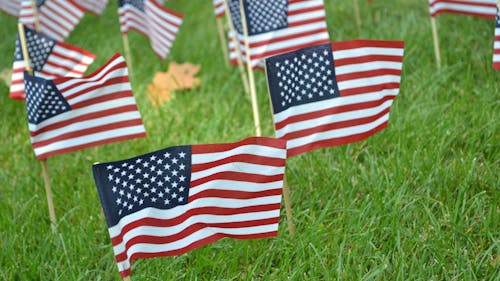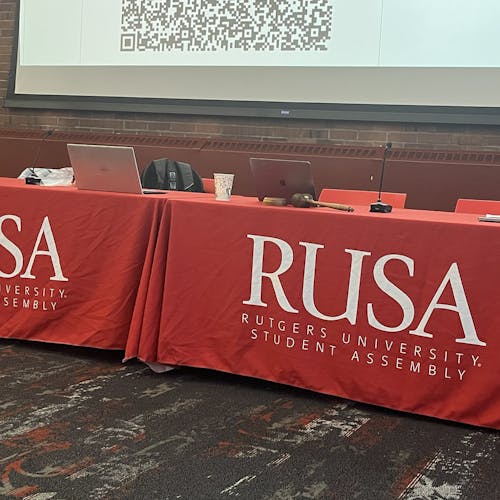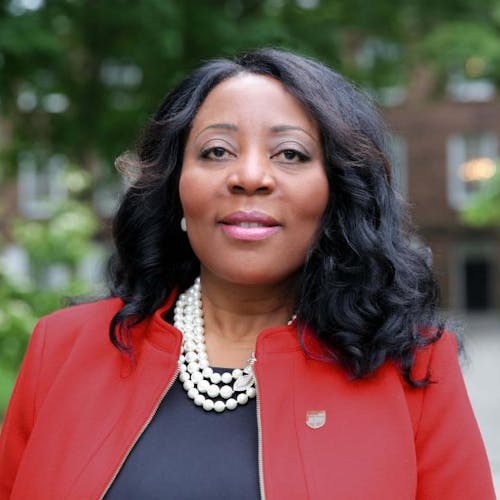Conservative students at Rutgers discuss their role at the largely liberal college

College campuses typically have a reputation for their politically left-leaning student bodies, and Rutgers is no exception to the trend. Despite the large liberal presence at the University, conservative students still want their voices to be heard and represented.
Erin Darreff, a School of Arts and Sciences senior and chairman of the Rutgers University College Republicans, said the large liberal presence at school sometimes stifles those leaning more toward the right.
“When I look at the large picture (of the 2012 presidential election popular vote) in contrast to the active conservative student population on campus versus the active liberal student population, conservative students are underrepresented,” Darreff said.
Claudia Azzam, School of Arts and Sciences senior and executive director of the Rutgers University College Republicans, said she used to think there was an underrepresentation, but now feels the bigger problem is fear to identify as Republican.
“It’s because the overall presence (on campus) is liberal, so in order not to feel alienated by other people, people tend to just go with the flow,” Azzam said.
Azzam said that a big reason students are reluctant to identify as conservative, whether in the classroom or in a discussion with colleagues, is the college campus is so liberal that everyone already assumes their peers are liberal.
Najum Junaid, a School of Arts and Sciences sophomore and political director for the Rutgers University College Republicans, said the general political attitude of instructors and classmates force conservative students to feel less inclined to be more honest about their beliefs.
“Especially in political science and writing courses, a lot of times we have to go in and kind of tailor our beliefs to what we think the instructor wants,” Junaid said. “A lot of the time when we go in with conservative beliefs, we feel like we might get marked down for not agreeing with what the teacher wants.”
Darreff said conservatives in classrooms are nervous to voice their opinion because they believe it may have a negative impact on their grades.
“In my view, freedom of speech is vital to our learning experience and should not be overwhelmed by political correctness or those unwilling to listen to opposing points of view,” Darreff said.
Junaid also said many Rutgers students are politically apathetic and do not pay attention to politics, but he has noticed that students who are active tend to lean liberal, citing it as the “nature of colleges.”
Darreff said the representation of liberals at Rutgers accurately reflects New Jersey as a whole, but the conservative presence on campus is larger than one may imagine.
“This year, the College Republicans have had over fifty conservative students come to our bi-weekly meetings,” Darreff said. “Over 500 people follow us on Facebook — I believe that’s highly significant.”
Junaid said how there is usually more political involvement right before the elections, which contributes to the increase in membership in College Republicans.
“A lot more people pay attention and try to think about their beliefs around this time to see where they stand on the political spectrum,” Junaid said.
Darreff said that while the general election for 2016 is still some 13 months away, part of the lack of interest in politics amongst millennial students is a result of their busy lifestyles.
“However, it is refreshing to know that some are tuning in earlier than expected to both the Republican and Democratic presidential primary debates,” Darreff said. “Like all citizens, students will be drawn to a certain candidate and will tend to identify with that candidate’s platform.”
Donald Trump is a reason people are more excited for this election, Azzam said.
Azzam also noted how not all conservatives or Republicans align themselves the exact same way. Rather, there is a range of different beliefs.
“People assume that all Republicans are the same, but it’s actually an umbrella,” Azzam said, “There’s a spectrum of Republicans.”
While some conservative students feel stifled or underrepresented at a largely liberal college, Darreff said these students should not be afraid to speak their minds.
“Don’t be silent during class. Don’t be afraid to disagree with a liberal professor or classmate during lecture,” Darreff said, “Professors who have strong feelings on politics must strive to be neutral in grading students and should make all students thoughts welcomed in academic discourse.”
Azzam added how students would be more vocal about being Republican or identifying as conservative if there is not such an overwhelming liberal perspective from the instructor in class.
“You can’t deny the bias in the classroom, no matter what major you’re in. Every teacher can provoke a political slant, even in science,” Azzam said. “It’s just very easy to constantly attack the Republican Party, and I think instructors should stop doing that.”



